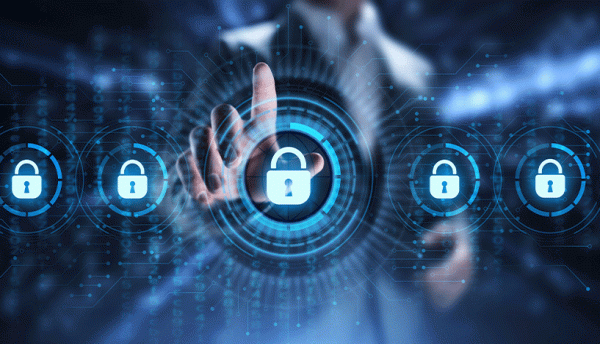Network security is a must for any business and must never be overlooked. It will make sure your company runs smoothly and protect your network from breaches and threats. Prashant R. Menon, Channel Manager – UAE, Check Point Software Technologies, Middle East, explains how Check Point helps the channel ensure top network security.
Network security is a vast and overarching term that describes hardware and software solutions as well as processes or rules and configurations relating to network use, accessibility and overall threat protection.
Network security involves access control, virus and antivirus software, application security, network analytics, types of network-related security (endpoint, web, wireless), firewalls, VPN encryption and more.
Network security is vital in protecting client data and information, keeping shared data secure and ensuring reliable access and network performance as well as protection from cyberthreats. A well designed network security solution reduces overhead expenses and safeguards organisations from costly losses that occur from a data breach or other security incident. Ensuring legitimate access to systems, applications and data enables business operations and delivery of services and products to customers.
How does your company help organisations obtain the security they need from the channel community that already serves them?
Check Point Software Technologies provides cybersecurity solutions to enterprise IT organisations across the world. The channel community plays an important role in helping us cater to our customers’ security needs. As cloud adoption picks up in the region, there is huge opportunity for our partners to reach out to many more new customers, help them leverage our market leading solutions and expand our regional footprint.
We’ve launched a number of channel initiatives with select partners to reach new customers where partners already have a relationship, typically termed ‘whitespace’. We are always keen to expand our channel community and engage with new partners who possess expertise in specialised domains such as Internet of Things(IOT). We have a strong enablement, training and certification programme for partners to acquire the necessary skillsets to address the modern cybersecurity challenges faced by organisations. We also extend our support to partners who need our assistance with end customer engagements in the consulting, design, build and execution phases to ensure smooth operations. This initiative enables us to reach the existing customer base of our partners and then give customers the much-needed comfort to take the right steps, while adopting security best practice in combination with our robust technologies.
How has the enterprise network changed within the last year and what security issues have arisen from these changes?
The COVID-19 pandemic changed lives and the way businesses operate. Organisations across the globe were suddenly paralysed and sought ways to recover to ensure Business Continuity. With remote work being the new norm, challenges in accessing corporate resources through secure access was one of the most common needs. Collaboration tools, such as Zoom and Microsoft Teams, came to the rescue, but this too had its share of security issues, leading to debates about it being the right tools with the much-needed security to exchange critical information. Accelerated Digital Transformation initiatives and the move to cloud was the order of the day for most organisations, which has raised a lot of questions and doubts on the risk posture of the business itself.
What’s the most common cybersecurity issue you see?
One year into the pandemic and there is still uncertainty and fear among employees and businesses in countries that are still into a full or semi-lockdown. With people confined to their homes, cybercriminals have the perfect stage for delivering malware, ransomware and phishing scams. Since the pandemic, attack surfaces grew exponentially as businesses rushed to enable remote access to corporate assets. Many companies allowed connectivity from unmanaged home PCs and personal mobile devices were allowed access to networks. Businesses turned to the cloud for scalability purposes, while not scaling their security posture in comparison to their traditional data centres. All these moves present many opportunities for hackers to strike. Businesses must look at implementing holistic security strategies to secure not just their networks, but also include the Edge and the cloud.
What can companies do today to ensure good network security?
With so much of complexity arising due to the shift in how business operates in the new normal, it’s important that we keep things simple. Focus on real-time threat prevention which is the key to preventing the next attack. Everything has to be reassesed and made secure – current network posture, processes, compliance of connected mobile and PC devices. Businesses must improve cloud security measures while moving to the cloud – it is the responsiblity of organisations to ensure data security in the cloud while understanding that cloud providers would only be responsible for providing a secure hosting platform. Move to a unified management – an organisation should aim for high visibility levels by consolidating. They must revisit their security investments and focus on consolidating their security investments by reducing the number of point product solutions.
Click below to share this article






